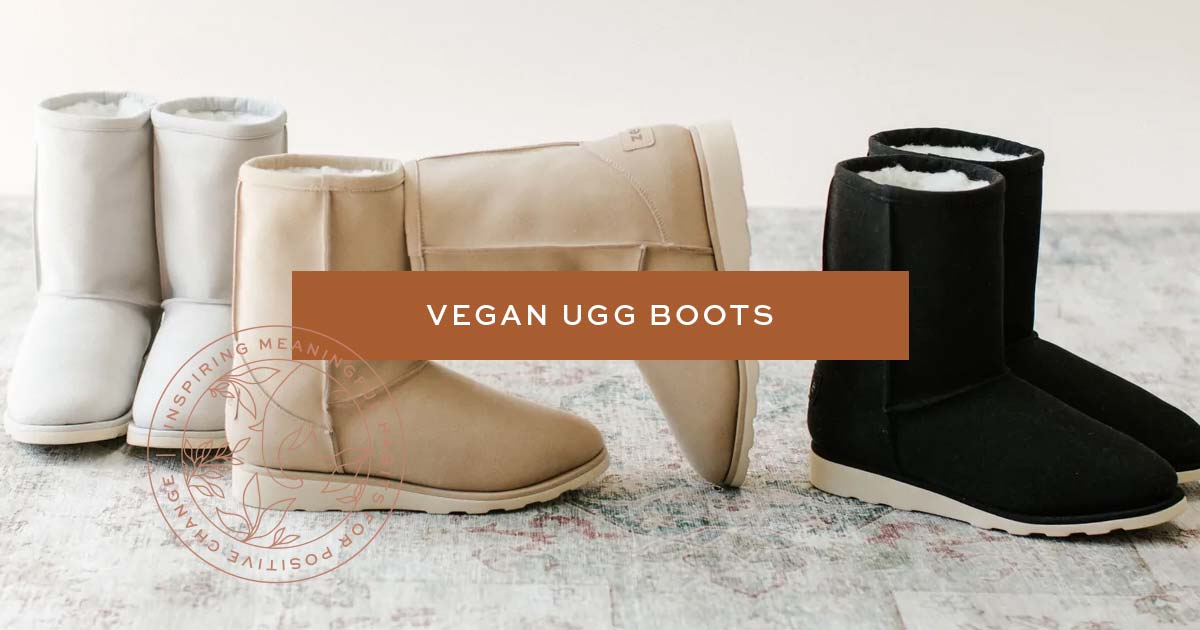In the realm of fashion, certain brands have become synonymous with comfort and luxury. UGGs, a brand famed for its iconic sheepskin boots, epitomize this intersection. Yet, beneath the plush exterior lies a complex ethical quandary that has ignited discussions concerning animal welfare. Do UGGs, in their quest for comfort, inadvertently support animal cruelty? For conscientious consumers, it is imperative to navigate this terrain with awareness and discernment.
At the core of the UGG phenomenon lies the utilization of sheepskin. When crafted into the soft, inviting exterior of these boots, sheepskin not only provides unmatched warmth but also exemplifies a luxury often deemed indispensable in modern footwear. However, such opulence comes at a steep price. The primary material employed in UGG boots is sourced from sheep, raising vital questions about the industry’s practices in animal husbandry and welfare.
The animal agriculture sector has long been scrutinized for its treatment of livestock. In particular, the wool industry, from which sheepskin is derived, is fraught with allegations of cruelty. Shearing, the process of harvesting wool from sheep, can be brutal. Without proper care and humane treatment, the potential for injury, distress, and suffering is alarmingly high. Moreover, the practice of mulesing—where strips of skin are excised from a sheep’s hindquarters to prevent flystrike—often occurs without anesthesia, eliciting profound ethical concerns regarding animal rights.
As consumers become more informed about these practices, the question arises: is it acceptable to continue supporting a brand that includes such materials? UGG has made strides in recent years to address these ethical dilemmas. The brand has pledged to source its wool from farms adhering to responsible animal welfare standards, but critics argue that such assurances can be vague and do not guarantee full transparency. This creates a chasm of uncertainty for ethical consumers striving to make informed choices.
Furthermore, the issue extends beyond mere animal welfare. Environmental concerns also play a significant role in the ethical considerations surrounding UGGs. The process of raising sheep for sheepskin has a considerable ecological footprint, with livestock farming contributing to greenhouse gas emissions, soil degradation, and deforestation. Such environmental repercussions complicate the simplistic binary of ethical vs. unethical consumerism, as shoppers must weigh animal welfare against environmental sustainability.
Intriguingly, the rise of alternative materials has sparked innovation within the footwear industry. Brands are now exploring synthetic alternatives and plant-based options that simulate the texture and aesthetics of traditional sheepskin without involving animal products. This shift not only caters to the ethical consumer but also challenges established brands to reconsider their materials and sourcing practices. For example, vegan leather and sustainable textiles are gaining traction, enticing those who seek cruelty-free choices within the realm of fashion. Additionally, innovations in biodegradable materials promise a more sustainable future, nudging consumers towards more environmentally conscientious purchases.
Consumer advocacy plays a pivotal role in driving these changes. Voices on social media platforms raise awareness about the ethical ramifications of fashion choices, prompting brands to respond with reforms. Activists working against animal cruelty have used these platforms to spotlight the harmful practices prevalent in the industry. Transparency and accountability have become buzzwords in the business lexicon, as consumers increasingly demand honesty about sourcing, labor practices, and environmental impact.
Further complicating these discussions is the concept of “ethical consumerism.” Many individuals aspire to make choices rooted in integrity, yet the labyrinthine nature of global supply chains often makes it challenging to ascertain the ethical implications of a purchase. This dilemma calls into question the role of consumers in promoting ethical practices. While many consumers desire to shop responsibly, the overwhelming quantity of brands and products can lead to confusion. Brands must not only bolster their ethical claims but also educate consumers on the implications of their purchases.
In embarking on any purchasing journey, ethical consumers should consider a multi-faceted approach. Researching brands, scrutinizing sourcing policies, and understanding the broader implications of materials used are fundamental steps in this process. By advocating for transparency, consumers can influence brands to prioritize humane and sustainable practices. Furthermore, supporting businesses that prioritize ethical standards fosters a market that values compassion over consumerism.
As conversations about animal rights and ethical consumerism gain momentum, UGGs become emblematic of broader industry issues. While the brand may have taken steps toward reform, the presence of animal-derived materials continues to evoke passionate debate. The crux of the matter lies in the responsibility borne by brands and consumers alike. Those who champion animal rights and environmental stewardship must remain vigilant, demanding accountability and pushing for innovation.
Ultimately, the decision to support brands like UGG hinges on individual values and priorities. For those ardent about animal welfare, the choices are clearer, often leaning towards products that uphold ethical standards. As the landscape of fashion evolves and the demand for cruelty-free alternatives grows, both consumers and brands stand at a pivotal crossroads. With a commitment to making informed choices, ethical consumers must navigate this intricate web of ethics, sustainability, and responsibility. By doing so, they not only advocate for animal rights but also pave the way for a future where compassion is woven seamlessly into the fabric of fashion.








